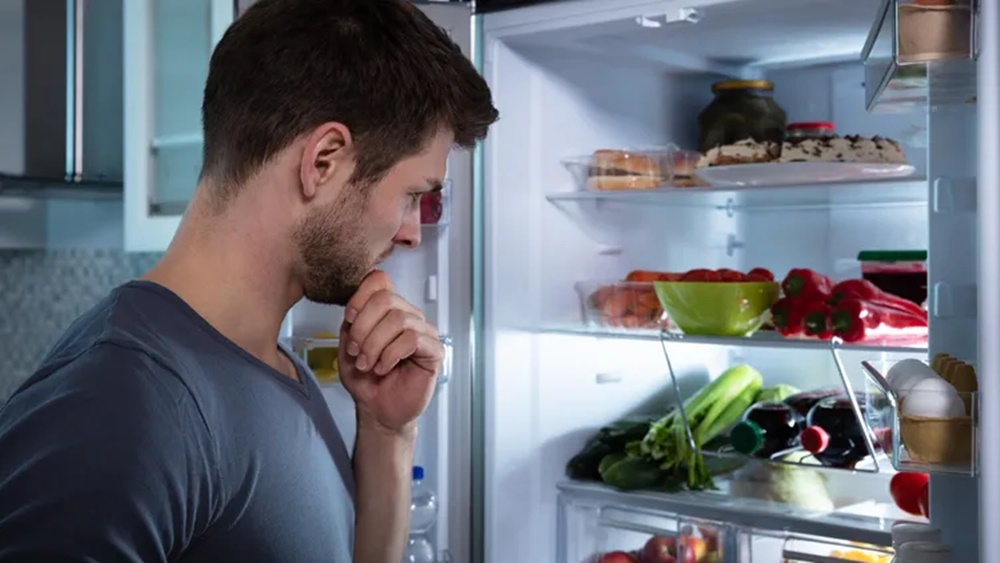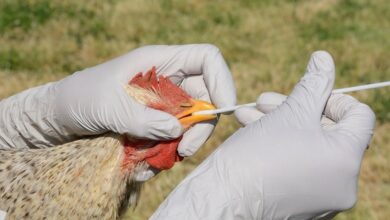What not to eat if you have kidney stones
Anyone who has or has had kidney stones should avoid certain foods.

Cola for example. We explain which diet is recommended for kidney stones.
Kidney stones cannot be eliminated by a specific diet. But if you pay attention to a few things when choosing food and drinks, you can reduce the risk of new stones forming. This risk is high: about half of people who have had a kidney stone in the past will develop other stones over the next few years.
Various measures are necessary for prevention. One of them is a change in diet. Drinking is particularly important: those affected should drink at least two and a half liters of liquid every day, distributed as evenly as possible over the day so that the urine is always well diluted.
The more watery the urine, the easier it is for the substances it contains to dissolve and the lower the risk of new kidney stones. This is not only a theoretical assumption, but has also been confirmed in scientific studies.
For example, a study of people who had previously had a kidney stone found:
12 out of 100 test subjects who consistently drank so much that they passed more than two liters of urine a day developed a new kidney stone within 5 years.
27 out of 100 test subjects who maintained their drinking habits developed kidney stones again during the same period.
However, these and other studies also show that drinking a lot does not always prevent the formation of new stones. To what extent this measure protects and what it depends on cannot yet be said with certainty.
What to drink if you have kidney stones
In addition to the amount you drink, the choice of drinks is also important. Water and unsweetened herbal and fruit teas are considered ideal because they increase the water content of the urine and do not contain any substances that promote kidney stones.
The effects of popular caffeinated drinks such as coffee, green tea or black tea have not yet been finally clarified. However, previous studies at least suggest that these drinks – if consumed in moderation – do not harm. The guideline, which doctors follow when treating kidney stones, therefore does not advise against it.
The extent to which certain juices or juice spritzers are suitable is uncertain. Orange juice and lemon juice can increase the citrate content of the urine. Citrate is considered stone-inhibiting because it binds dissolved calcium in the urine and thus prevents calcium oxalate stones from forming.
However, studies have found that these juices do not appear to reduce the risk of kidney stones. The researchers could only speculate as to why. Other ingredients may promote stone formation, which negates the stone-inhibiting effect of the citrate.
What is certain is that fruit juices contain quite a lot of sugar, which is generally unfavorable in the case of kidney stones. Among other things, because sugary drinks and foods promote obesity, which increases the risk of kidney stones.
For this reason, sweetened drinks of all kinds should be avoided with kidney stones. Experts advise against soft drinks in particular – for another reason.
No coke for kidney stones – why?
Cola and other soft drinks contain phosphoric acid (the additive E338), which is thought to promote the formation of new kidney stones. This was the conclusion reached by several studies in which the influence of sugar-free cola and lemonade was also examined. Those affected should therefore avoid soft drinks altogether.
What not to eat if you have kidney stones?
Which foods can be problematic for kidney stones depends on the type of stone. Diet plays a role mainly in the case of calcium-containing kidney stones or uric acid stones. For the other types of stones, there are no specific dietary recommendations other than increased fluid intake.
In the case of calcium-containing kidney stones, which are by far the most common, it is important to use salt sparingly. Consuming salt causes more calcium to pass into the urine. Those affected should therefore make sure that they do not consume more than six grams of salt per day. In order to stay below this limit, it is often necessary to eat very few processed products, as these are often heavily salted.
In the case of kidney stones from calcium oxalate, it is also recommended to avoid oxalate-rich foods or to eat only small amounts. There is a lot of oxalate in:
rhubarb
nuts
foods containing cocoa
spinach
chard
beets
Sometimes sufferers wonder whether they should also avoid foods containing calcium, such as dairy products. However, this does not make sense and may lead to an increased oxalate content in the urine. Dietary calcium and oxalate partially combine in the gut and are excreted in the stool as calcium oxalate. If too little calcium is available, the body absorbs more oxalate, which then ends up in the urine.
Calcium can and should definitely be on the menu. Experts estimate the optimal daily intake at 1,000 to 1,200 milligrams.
In the case of uric acid stones, other rules for nutrition are in the foreground. Doctors sometimes recommend that those affected eat as little meat, fish and seafood as possible because they are rich in purines. These substances are building blocks of genetic material and are broken down by the body into uric acid.
A low-purine diet can therefore lower the uric acid level and thus – possibly – also counteract the formation of new uric acid stones. However, the latter is only a guess. The extent to which a low-purine diet can protect against uric acid stones has not yet been scientifically investigated.
General diet tips for kidney stones
According to the medical guideline for the treatment of kidney stones, sufferers should ensure that they consume enough protein and fiber. For protein, a daily intake of about 0.8 to 1 gram of protein per kilogram of body weight is recommended. The guideline does not say how much dietary fiber there should be. In general, 30 grams per day or more is a good guideline for adults. Good sources of fiber include whole grain cereal products, legumes such as beans, berries, apples and some other types of fruit.
However, it has not been scientifically proven whether a high-fiber diet with sufficient protein can prevent new stones.
The only thing that is clear is that a balanced diet helps to reduce and prevent obesity, which is considered a risk factor for kidney stones.
Of course, in order to achieve and maintain a healthy weight, not only the protein and fiber content of the food is decisive. When it comes to losing weight, it is particularly important that those affected do not consume too many calories overall. Regular exercise is also beneficial.
In many cases, professional nutritional advice can help those affected to optimally adapt their diet to their state of health. If the doctor prescribes the consultation, the health insurance pays at least part of the cost. It is important that the consultant is reputable and recognized by the health insurance companies. The NRW consumer advice center has put together a helpful checklist for orientation.

